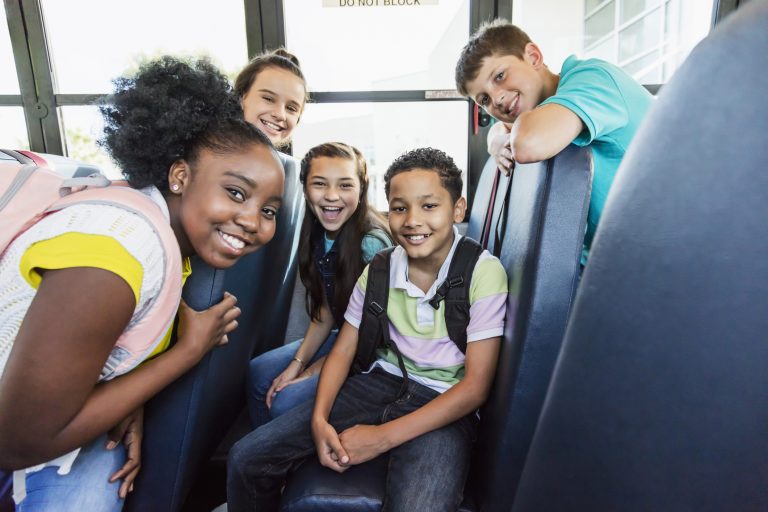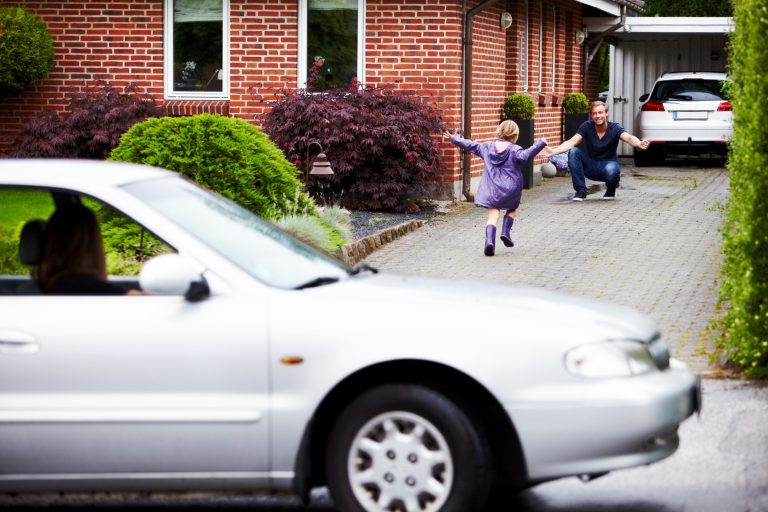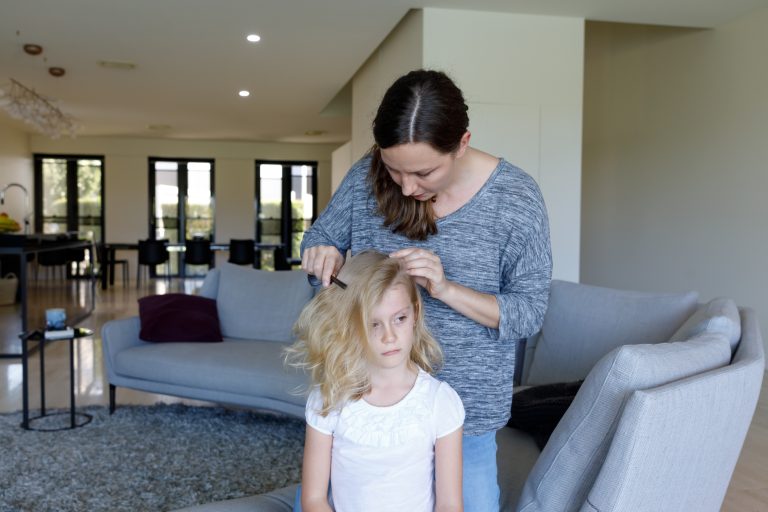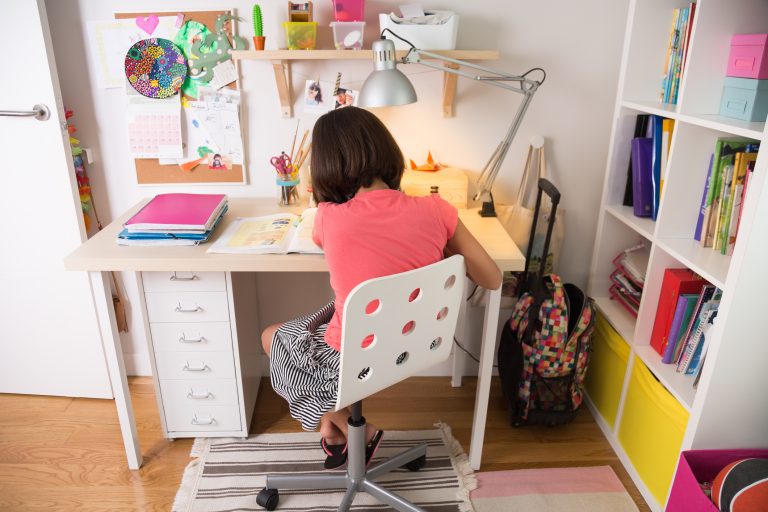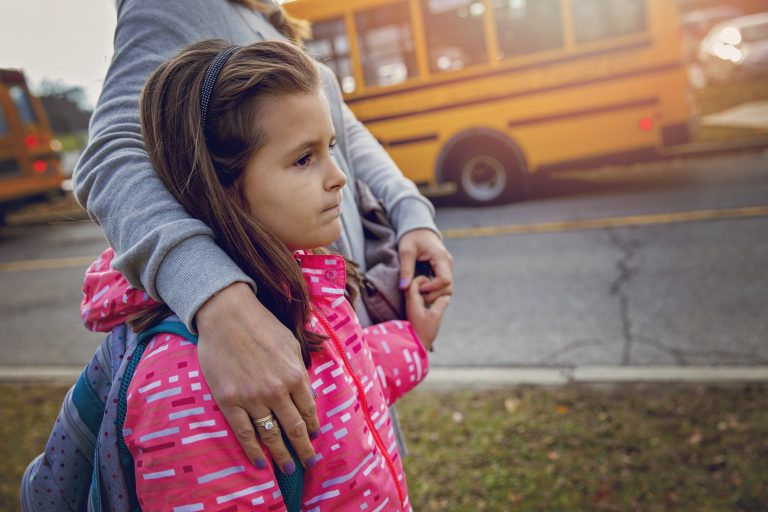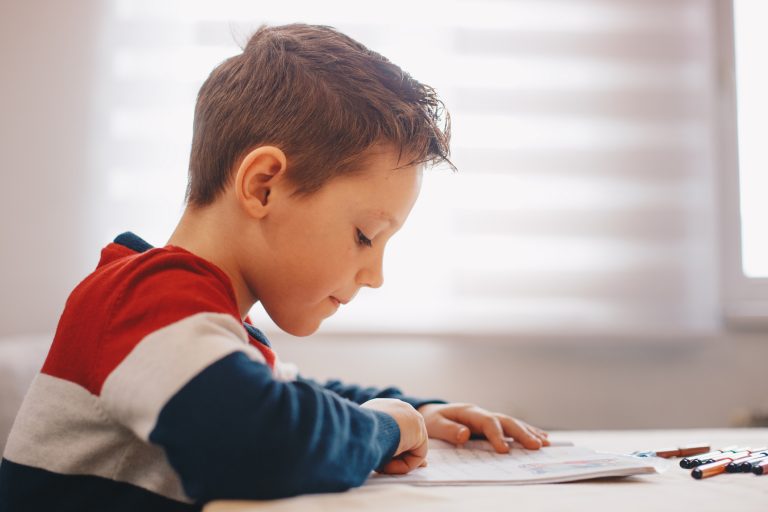Attention Deficit Hyperactivity Disorder (ADHD) is a neurodevelopmental disorder that affects both children and adults. It is characterized by symptoms such as inattention, hyperactivity, and impulsivity. People with ADHD may find it difficult to focus, complete tasks, and control their behavior. ADHD can pose unique challenges for students, especially when it comes to staying organized. However, with some simple strategies, students with ADHD can learn how to manage their time, keep their stuff organized, and be more focused on the task at hand. Here are some organization tips for students with ADHD. ADHD Students should use a calendar or planner: A planner or calendar can be an effective tool for managing time and keeping track of assignments and deadlines, especially for students with ADHD who often struggle with managing their time. By having a visual representation of their schedule, students with ADHD can better organize their time and reduce the…
Taking the school bus can be a scary responsibility for kids and very overwhelming for parents. But it doesn’t have to be. Talking to your kids about the bus being prepared and organized can make the bus system a good experience for kids. But how do you do that exactly? Here are school bus safety tips for kids, great tips to talk about and be prepared for. School Bus Rules for Parents to Be Aware of: There can sometimes be confusion about the bus procedure and where the responsibility lies. Here are some general rules that most school districts and bus companies follow that are good for parents to be aware of. -It’s the responsibility of the parents to understand the safety procedures and talk about them with their child. -Parents are responsible for their children until they board the bus and again immediately as they step off the…
Co-parenting can be tricky; there are lots of emotions, many people to consider, and a wide array of schedules to coordinate. But with effective cooperation and communication, it is possible to make it smoother. Here are some tips to co-parent successfully through the school year. How to organize the schedule between both parents: Start discussing the school schedule well in advance to avoid any last-minute conflicts. Consider the following: -PA Days -Doctor and dentist appointments (especially any that may impact your ex’s days or pick-up times) -Parent-teacher interviews -pick up and drop off’s -extracurricular schedules -Special days (pink shirt days, pizza days etc.) Make sure it’s on everyone’s calendar and that any adjustments to the calendar or schedule have been discussed in advance. Make sure everyone is aware of what each day entails and has the items needed. Coordinate supplies and schedule: Coordinate your shopping trips to avoid duplicating…
Lice, just the word alone, can give parents the ick. The beginning of the school year is often a big time for lice; there are so many new heads to infest! With classrooms getting more and more kids each year, it’s unsurprising that it’s so easily spread. When your child comes home with lice or even the dreaded note indicating there are lice in the classroom, immediately our heads get itchy, and we feel squeamish. Here are some tips to prevent and treat lice. We know action needs to be taken immediately, whether you need to treat lice, or are aware it’s spreading throughout the class and you need to prevent it – the time for action is immediate. The good news about lice: While the thought of lice is unsettling, it’s good to remember that lice aren’t a major health risk, nor do they carry any disease like other…
Back-to-school means the return of the dreaded “h-word”: homework. Don’t worry, though — we’ve got three “s words” to help you through it (and no, it doesn’t include the one that immediately comes to mind). For Homework tips to make the process more efficient and less painful, try using the three S’s: schedule, space, and support. Schedule – How to create a homework schedule It’s helpful to establish good habits and a regular homework routine right from the start. You know your child best, so customize the timing by asking the following questions: Are they best suited to tackle their work right after school, before they get caught up in their free time activities? For example, once they get rolling on something fun, will it be a huge battle to transition them back into a school mindset? Would they benefit from a bit of time to decompress and regroup first?…
With the start of the school year right around the corner, there will be lots of little ones starting their first year of school in Senior or Junior Kindergarten. While it can be stressful for your kids, this is also a really hard time for you! All summer long you spend your days wondering if you’ve prepared them enough to finally head out on their own in the big wide world of elementary school and the truth of the matter is: no child can ever be completely prepared for this big step, but there are definitely some things we can make sure we’re seeing in our children before September rolls around. We’ve made it easier for you both by creating a fun checklist for you and your kiddo to work on this summer. The list is below, and here is a FREE Kindergarten Readiness Checklist for your little one to…
It’s the time of year that starts to creep up on some families. No matter how fun summer has been, it comes to an end; some of our kids become anxious and dread the unknown ahead. A new year at school can be exciting, but it can be a tough transition for other kids. New class, new teacher, new friends, some see the unknown as exciting and fun. However, for kids who struggle with transitions and change, these exciting times can require a lot of planning and care. Here are some anxious kids transition tips for school. First, parents may begin to see behavior changes in their anxious or sensitive kids this time of year. Kids may start to ask a lot of questions about the new year (which is particularly difficult when you don’t have the answers for them). Some signs they may be struggling with transition to…
Dyslexia is a word we hear thrown around often, but many parents don’t fully understand what it means or how to recognize it. If your kids are struggling to read, and you’re worried that these struggles may be beyond regular development, then you’ll want to read on! We asked Heather McNulty, a reading expert, to help us break down the reading process. Here are the signs your child may be dyslexic, what to do next, how to advocate and tips on successfully helping your kids learn to read. In fact, even if your child isn’t dyslexic, you’ll probably find this very helpful as your little ones start to learn to read, enter kindergarten and take an interest in reading. So arm yourself with these tips, and you’ll find you and your little one will have a smoother transition into the literary world! So, what is Dyslexia? Dyslexia “is a neurologically…
Finding out your child is being bullied is completely heart-breaking for parents. It’s hard to understand how it could happen and even more confusing to understand what to do next to support your child. So often, the mama-bear comes out, and we have the urge to find the bully and confront the bully head-on, even though the logical adult in us knows that’s not the right thing to do. Here are signs your child is being bullied and what to do next. Firstly, parents should remember that disagreements are a part of life, and we don’t want to jump to conclusions over every peer conflict. It’s healthy and typical for kids to deal with peer conflict, and they must learn to manage the situations. Here are a few essential differences that parents should be aware of between bullying and peer conflict: Peer conflict is a MUTUAL disagreement between two kids…
Back-to-school season is a great time to start new routines or tweak existing ones. Maybe you’ve always liked the idea of your kids walking to school, but haven’t been able to do it consistently. To help you hit your stride, here are some common issues and tips to overcome them. “There isn’t enough time in the morning.” In households across the land, the morning rush is a daily struggle. As the new school year begins, some honest reflection might reveal areas for improvement. Could you be more organized? Could you wake up earlier, or pack lunches the night before? Can you minimize or eliminate distractions? You’re likely to have better results (and lower blood pressure at breakfast) if you adopt a structured plan. If your kids are old enough, make it into a mini science experiment. Use technology to record the actual time and distance, then calculate the necessary departure…


